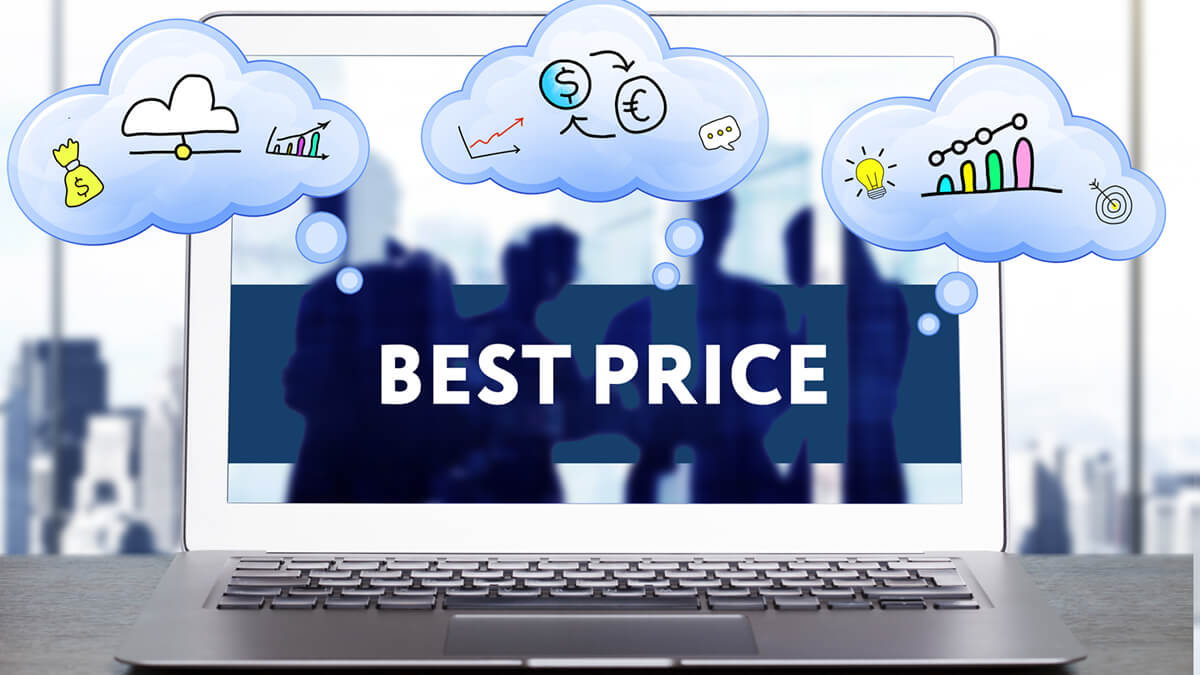No one would pay $50 for a hamburger but almost everyone would think $10,000 for a new car is an amazing deal. Which is to say, even those who haven’t gone to the best business schools or attended a top MBA program have a good sense of what things should or shouldn’t cost. Nevertheless, if you’re in business management—or want to enter a management career—understanding that price is important isn’t nearly enough. You need to know how to strategically set prices in ways that can maximize your chances of success.
To help you along, here are some price-setting tips.
Know Your Sales Margin
Each item you sell needs to be priced in a way that lets you make the money your business needs. One way to analyze how your prices are impacting your profit is to figure out your sales margin.
- Calculate how much it costs to create and sell your product. Include all costs: materials, labor, marketing, shipping, etc. That’s your total cost.
- Add up how much you received for selling your product. That’s your total revenue.
- Subtract your total cost from your total revenue. That’s your net profit.
- Divide your net profit by the total revenue. That’s your sales margin.
You want to make sure your sales margin is adequate for your business needs and growth objectives. If the sales margin is too low, you may need to adjust pricing in a way that will raise more revenue.
There Isn’t a Magic Number
When it comes to the pricing of individual products, consumers aren’t as price-aware as you might think. Research of shoppers has found that almost half of consumers can’t guess the price of an item (within 5% of its actual price) just seconds after selecting it from a shelf.* This indicates that many consumers aren’t fixated on—or even particularly attentive to—exact prices. Instead, consumers judge pricing on how the price feels. Does it feel too high, too low, or about right? A lot can influence this perception, from consumer income level to packaging attractiveness to previous experiences with similar products. The better you understand your primary consumers and what pricing structures feel right to them, the better you can price your product or service.
The Number Nine Has Power
We all know that 99¢ is, for all intents and purposes, $1 and that $79 might as well be $80. But that doesn’t mean we still don’t gravitate to the number nine. In fact, numerous studies have found that goods and services priced with a nine at the end regularly outsell the same goods or services rounded up. One study even found that women’s apparel priced at $39 outsold the same apparel priced at $44 and at $34.† That’s some real power.
But Round Numbers Can Work, Too
While the number nine has some psychological advantages, there are certain products that can sell better when priced with a round number. Specifically, when consumers make an emotionally driven decision to buy a product, they tend to prefer a round price (e.g., $100).‡ The preference for so-called roundedness likely comes from the fact the it’s easy for our brains to make an emotional decision and a rounded price flows right into that easiness. An exact price (e.g., $97.39) is less easy to digest and thus disrupts the emotional push. If your marketing and product deliverables are designed to grab consumers by their emotions, going with a simple, round price could help you capture more sales.
You Can Learn More With an MBA Degree or a DBA Degree
Price setting is a complex matter. If you want to increase your understanding of price-setting strategies—and improve your business acumen and management ability in general—you should consider earning an advanced business administration degree or management degree. Two of the best are the Master of Business Administration (MBA) and the Doctor of Business Administration (DBA). Earning a business administration master’s degree or a doctorate in business can greatly increase your business know-how and put you on the path to business success.
As an added advantage, you can now earn either of these great business degrees at an online university. Why is that an advantage? Because online graduate degree programs make earning a master’s degree or doctorate more convenient than ever before. When you enroll in either an online MBA program or an online DBA program, you can complete the majority of your coursework from home. Plus, with an online MBA or an online DBA, you don’t have to attend classes at set times. Instead, with online learning, you can organize your schedule in a way that works best for you, allowing you to work full time and take care of other responsibilities while you complete your degree.
When you earn an MBA online or a DBA online, you can gain the skills you need to price products right—and succeed in a business management career.
Walden University is an accredited institution offering Master of Business Administration and Doctor of Business Administration degree programs online. Expand your career options and earn your degree in a convenient, flexible format that fits your busy life.
*University of Southern California, Pricing, on the internet at www.consumerpsychologist.com/intro_Pricing.html.
†E. Anderson et al., Effects of $9 Price Endings on Retail Sales: Evidence from Field Experiments, Quantitative Marketing and Economics, on the internet at http://link.springer.com/article/10.1023%2FA%3A1023581927405.
‡R. Dooley, How to Set the Right Price Every Time, Neuromarketing, on the internet at www.neurosciencemarketing.com/blog/articles/round-pricing.htm#.
Walden University is accredited by The Higher Learning Commission, www.hlcommission.org.




